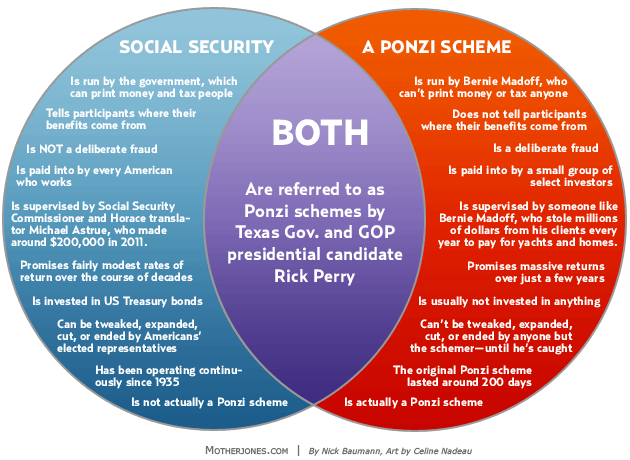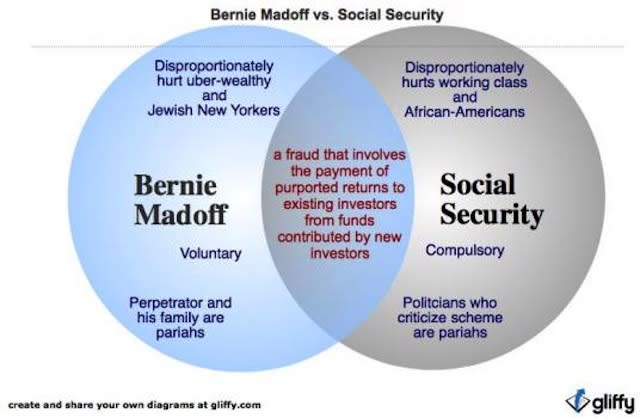 The Ticket
The TicketSocial Security a ‘Ponzi scheme?’ Competing Venn diagrams make rival cases
It's the era of federal budget cuts (well, sort of), and even Social Security--once considered "the third rail of American politics" and one of the country's most expensive programs--may not be granted its usual exemption.
Some legislators are discussing a plan which would raise the retirement age for those currently younger than 55, while others are proposing an outright restructuring of the pension program--all evidence, it seems, that the third rail is no longer as lethally charged as it once was.
Most recently, at a campaign stop last weekend, Texas Gov. Rick Perry called Social Security a "monstrous lie" to young people and a "Ponzi scheme."
"It is a Ponzi scheme for these young people. The idea that they're working and paying into Social Security today, that the current program is going to be there for them, is a lie," Perry said at an Iowa campaign stop, echoing passages from his book. "It is a monstrous lie on this generation, and we can't do that to them."
Sure, Social Security has its problems, but is it accurate to call it a Ponzi scheme? It depends on who you ask. Using Venn diagrams, two political columnists, Nick Baumann, a liberal, and Tim Carney, a conservative, make their case.
See both after the jump...
Baumann, a writer for Mother Jones magazine, quotes political scientist Jonathan Bernstein:
"[A]nyone who says that Social Security is a Ponzi scheme either misunderstands Social Security, misunderstands Ponzi schemes, is deliberately lying, or some combination of those... After all, a Ponzi scheme is a deliberate fraud. Saying that Social Security is financed like a Ponzi scheme is factually wrong, but saying that Social Security is a Ponzi scheme or is like a Ponzi scheme is basically a false accusation of fraud against the US government and the politicians who have supported Social Security over the years."
Not so fast, says Washington Examiner columnist Tim Carney.
"Yes, Social Security is regressive, as liberals will often point out," Carney writes. "You pay 6.75 cents on your first dollar, and probably on your marginal dollar, but the wealthy don't pay FICA on their marginal dollar."
"I think Baumann left some things out," he added, and created his own chart:
What do you think? Let us know in the comments.




